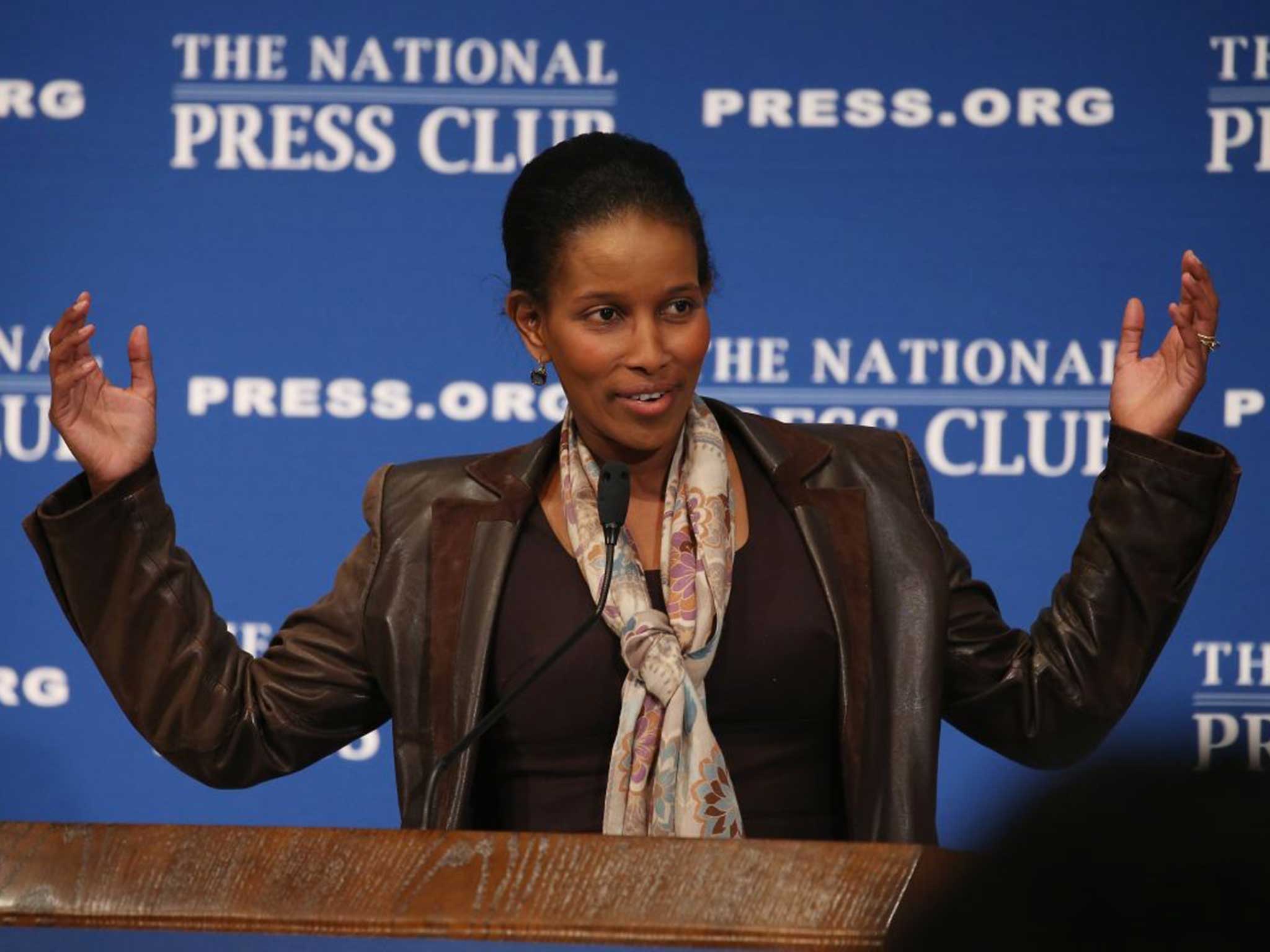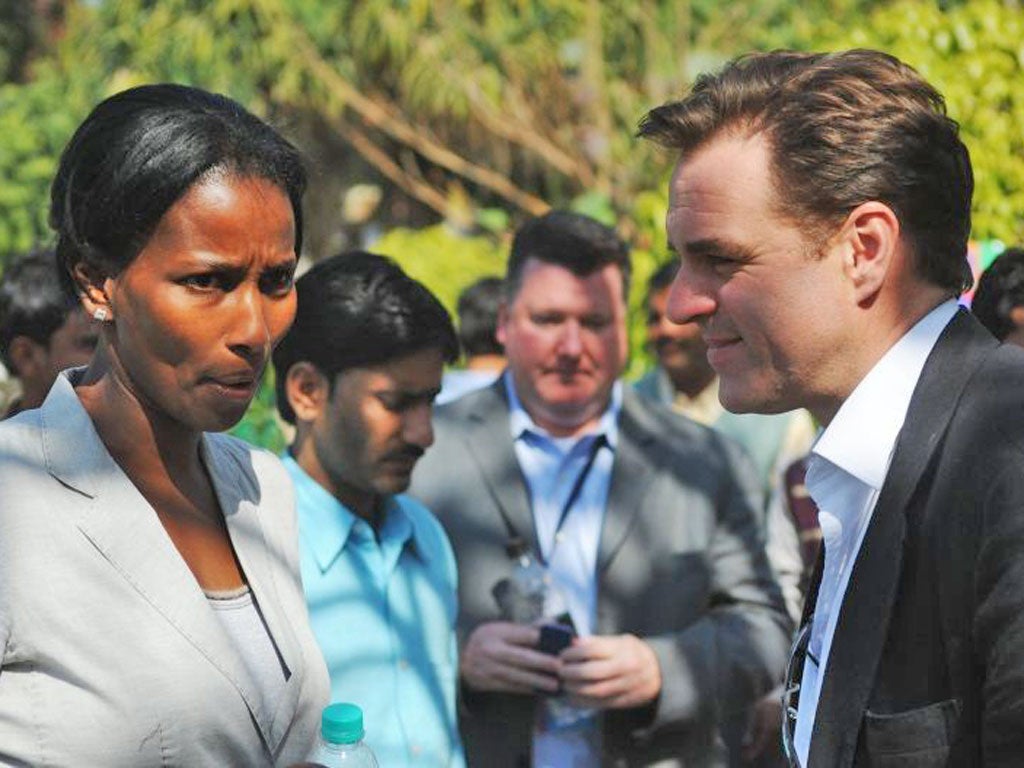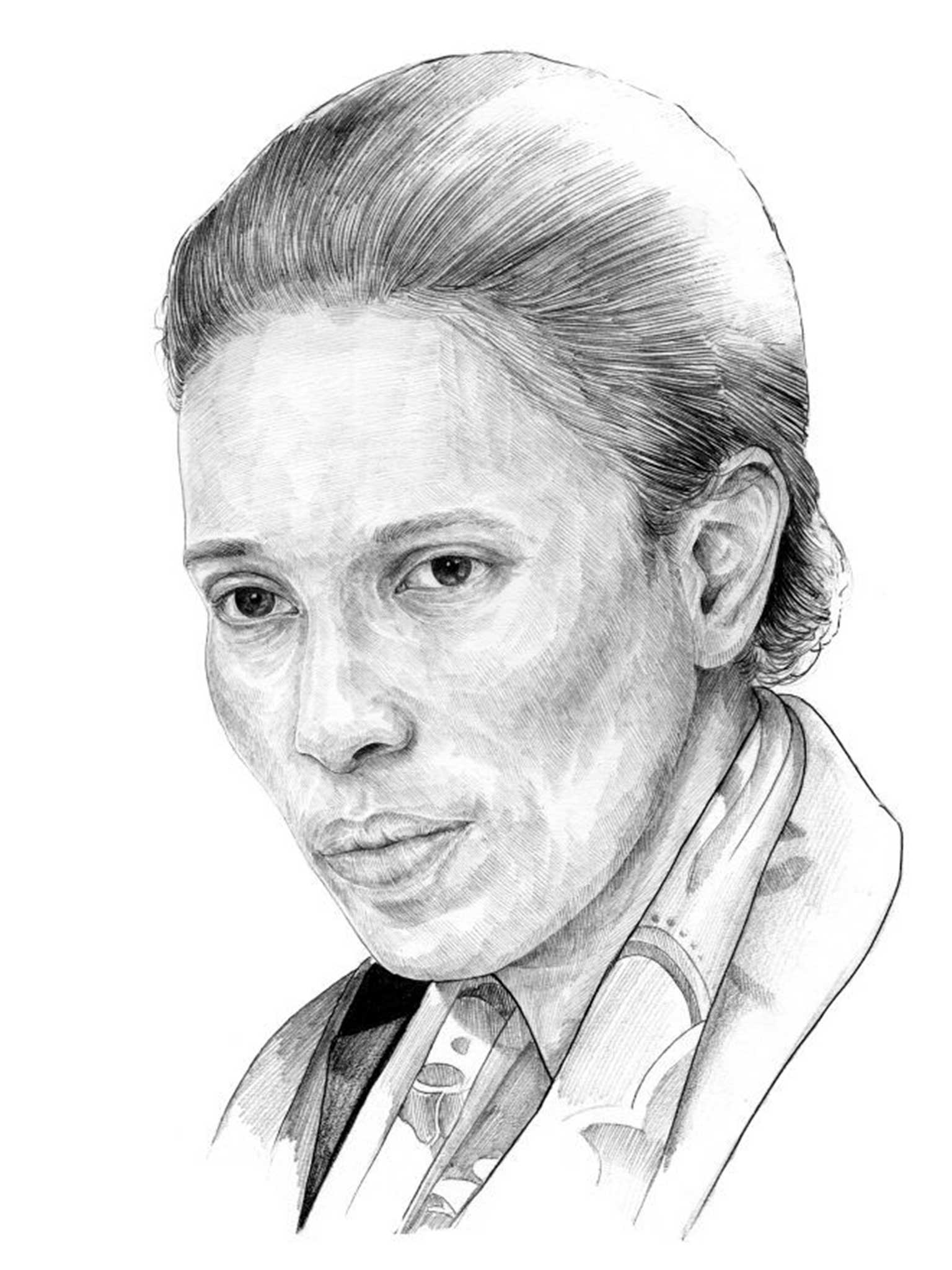Ayaan Hirsi Ali: Islam's most devastating critic
Unbowed by death threats, this apostate turned author is once again ruffling feathers with calls for religious reform

Life, they say, is a journey. If so, then the life of Ayaan Hirsi Ali has been a scarcely believable global odyssey, of both body and mind.
She was born in Somalia, brought up in Ethiopia, Saudi Arabia and Kenya, only to seek asylum in the Netherlands and later migrate to America. Along the way, a devout and submissive Muslim girl turned into an author, campaigner for women’s rights and fierce defender of Western values. Today she is an atheist. More important, she is arguably the most visible and effective critic of Islam on the planet.
In the US, where she lives with her husband, the outspoken Scottish historian Niall Ferguson, she has just published her latest tirade against her one-time faith, Heretic: Why Islam Needs a Reformation Now. Islam is not a religion of peace, she writes, but one that foments terrorism, breeds sectarian conflict and sanctions the repression of women and minorities. The book seeks to identify what must change in Islam to permit the separation of politics and religion and bring about a peaceful and tolerant faith – and how the West might hasten the process.

This last has set her at odds with the Obama administration, and a President who again and again preaches reconciliation between Islam and Christianity. At the National Press Club in Washington this week, she returned to the charge, calling America’s policies towards the Middle East “incoherent”. Obama, she said, found himself sometimes supporting, sometimes opposing, both Shia Iran and Saudi Arabia and other Sunni regimes as they waged proxy wars in Syria, Iraq and Yemen.
In doing so, she implicitly criticised the President for his famous refusal to classify militant groups such as Isis as “Islamic extremists”. Indeed, Obama’s entire reasoning was wrong. The thousands of young foreign recruits to the cause of Isis were not “losers” – if so, she argues, why would they leave prosperous, decently governed countries such as Britain and the US to fight in half-destroyed cities in the desert sands? Rather, it was the appeal of a religion, or, more exactly, a murderous ideology embedded within it.
If anyone is qualified to hold such views, it is Hirsi Ali, the self-professed heretic. As a young girl, she was subjected to genital mutilation. At school in Africa, she sympathised with the Muslim Brotherhood and wore a hijab as part of her uniform. In 1992, however, she was granted asylum in the Netherlands. There she read avidly and took a postgraduate degree in political science at Leiden University, her feminist activism and disenchantment with Islam growing in lockstep.
With the 9/11 attacks against America, perpetrated by Muslim fanatics scarcely younger than herself, disenchantment turned into apostasy. By 2002, she was proclaiming herself an atheist, and her criticism of Islam – and of the prophet Mohamed himself – became ever sharper. A year later, she was elected to the Dutch parliament representing the VVD, or People’s Party for Freedom and Democracy. By now, for Muslim true believers, she was a hate figure to rival Salman Rushdie. As death threats multiplied, guards accompanied her almost everywhere she went.
Then came the Theo van Gogh affair. A talented writer and film-maker, van Gogh in 2004 directed the movie Submission, a damning critique of Islam’s treatment of women, on which Hirsi Ali collaborated. That 2 November, van Gogh was savagely murdered in Amsterdam by Mohammed Bouyeri, a second-generation Moroccan migrant. Bouyeri left a message, driven by a dagger into the film-maker’s corpse, warning that Hirsi Ali would be next.
Afterwards she went into hiding for two months, while her campaigning, bravery and new-found celebrity earned her a spot on Time magazine’s 2005 list of the world’s most influential people. Back in the Netherlands, however, things were starting to turn sour.

An investigative TV programme claimed she had supplied false information about her age, name and motives when applying for asylum. Ultimately she was forced to admit she had lied, but maintained that the reason for her request, that she was escaping from a forced marriage, was true. A few months later she left for the US, and the calmer and more congenial waters of the American Enterprise Institute, a conservative think-tank based in Washington. In 2007, she founded the AHA foundation, which works to end honour violence against women. An admirer hailed her as “a modern Joan of Arc... one of the great positive figures of our time”.
One thing, however, was lacking in the extraordinary tale of Ayaan Hirsi Ali: a love interest. Her long-time friend Belinda Luscombe, Time’s art editor, described the problem with trademark Yankee bluntness: “She’s gorgeous, but with a fatwa, it’s tricky to find guys.” But that changed in 2009 when she met Ferguson in the somewhat improbable match-making environment of a Time Influential People’s party. (Ferguson was granted that distinction in 2004.)
Outwardly they might seem opposites: he the historian-cum-polemicist, a right-wing bruiser among public intellectuals and a ferocious critic of Obama; she feminine and calm spoken, in manner if not in content. But politically they were well attuned, conservatives with a shared antipathy to the soggy liberalism that feels constrained almost to apologise for the West’s achievements and fails to grasp how vulnerable its democratic values are in places such as the Middle East.
Hirsi Ali, Ferguson has said, “understands better than anyone I know what Western civilisation really means – and what it still has to offer the world”. And, he added, she had “a clarity and freshness of perspective that’s really hard for us to match”. The couple had their first child, a son, in December 2011. But motherhood has not dampened Hirsi Ali’s eagerness for the fray.
She had already set out her credo in a series of books, starting with a couple during her Dutch days, one of them entitled in translation The Caged Virgin: A Muslim Woman’s Cry for Reason. In 2006, she published her first autobiography, Infidel, followed by Nomad: From Islam to America, a Personal Journey Through the Clash of Civilisations.
And now Heretic. Its thesis is that the world’s 1.6 billion Muslims fall into three categories: a small minority of extremists, the vast majority who are observant but peaceable, a group she describes as “Mecca Muslims”, and a handful of dissidents like her, who risk all (among them Raif Badawi, the Saudi blogger who has been flogged and could yet face the death penalty for criticism of Islam).
Heretic urges an Islamic version of what happened in Europe between five and three centuries ago: reformation followed by enlightenment and the Age of Reason – in other words, modernisation and secularisation. The Arab Spring of 2011 gave Hirsi Ali some hope this might happen, and the small but growing number of dissidents encourages her that it still might. But for the moment she remains prominent on the most-wanted list published by al-Qaeda.
“When you live the way I live,” she told CNN days after the Charlie Hebdo massacre in Paris, “you have to ask yourself over and over: who are these people who try to kill me? What do they want? What drives them? This is not a group of deranged thugs. It’s an ideology embedded in a world religion. For me to be safe, I have to outlive a generation whose minds are contaminated with it.”
A life in brief
Born: 13 November 1969 in Mogadishu, Somalia.
Family: daughter of the Somali opposition leader Hirsi Magan Isse and Asha Magan. Married to author Niall Ferguson. They have one son, Thomas, aged three.
Education: Muslim Girls’ Secondary School, Nairobi. MSc in political science, Leiden University, Holland.
Career: Member of the Dutch House of Representatives 2003 – 2006. Founded the AHA Foundation 2007. Writer of ‘Women on the Frontline’ and ‘Heretic’.
Join our commenting forum
Join thought-provoking conversations, follow other Independent readers and see their replies
Comments
Bookmark popover
Removed from bookmarks